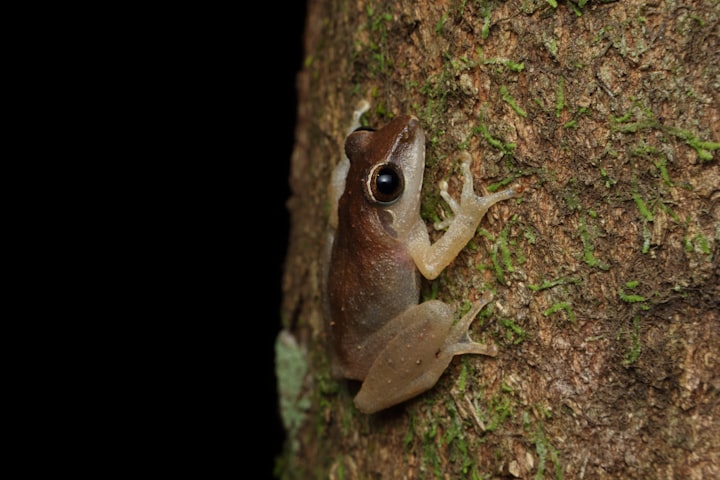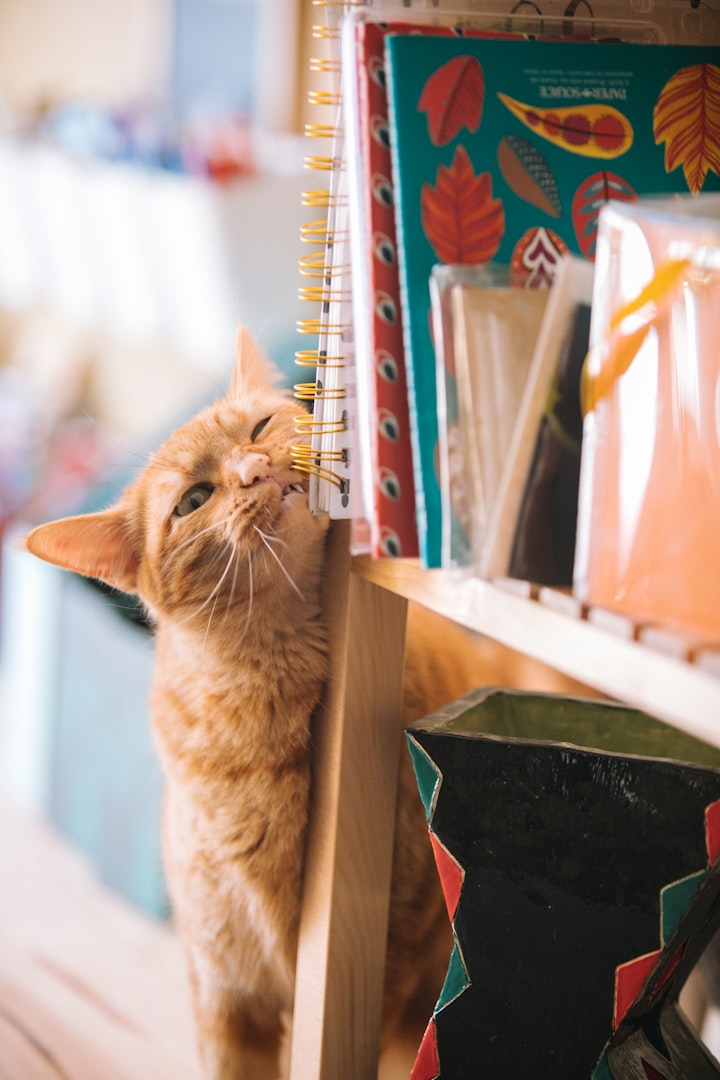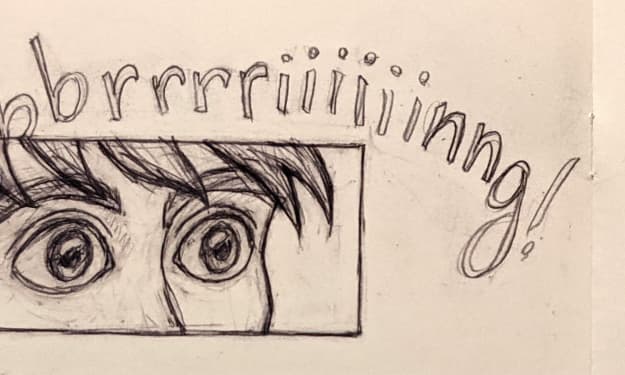Coquí: Let Me Sing a Song for You
Stumbling upon a Legend from my Taíno heritage

Introduction
I am a fairytale and folklore geek. I hail from a small backwoods town in Connecticut. My grandfather is from Puerto Rico which make me a Quarter Rican. These three things are important to note as I tell you this story.
Today was another sunny L.A. day and it was my day off so I decided to visit Mofongo's, a Puerto Rican restaurant I'd found, to my delight, in my neighborhood. American and Puerto Rican flags wave proudly over the friendly yellow awning shading tables with pictures of famous Puerto Rican artists, base ball players and, on one table, a coquí, the tiny tree frog with a big voice. Coquí incredibly cute, pleasant to hear and have a fun name to say aloud, I remember learning about them in a song in elementary school, "Coquí, coquí, coquí-quí-quí-quí!" was the chorus. I think I confused the spring peepers by our house, a different breed of tiny frogs with big voices native to Connecticut, with coquí shortly after learning the song. My little Connecticut town had it's own frog legend (a tale for another time) and a significant Puerto Rican community. I remember a popular little Puerto Rican restaraunt that had been right next to my community college called El Pilón. They had a picture of a tree frog using a mortor and pestle above the door and the most delicious enpendada-like things, I can't remember what they were called now but the seasoned hamburger in orange pastry could be a real lifesaver and sustain you through classes on a busy day.
So Mofongo's felt familiar and comforting with it's sunny walls hung with colorful horned masks, instruments and pictures of celbrities. They even has a little glass case of souveniers, Puerto rican flags, key chains and Domino sets. Over that was a tv playing a documentary about the beautiful cities and landscapes of Puerto Rico. This documentary is what I was watching while waiting for my jibarito de pernil and cassa fritas. I looked up just in time to read the captions at the end of a story about how the coquí sang for that saddened goddess.
Wait, what? To the Google! And that's how I found this incredible Taíno legend. In the posts I found the goddess is simply called "A beautiful goddess" but that doesn't really fly with a female storyteller in the 21st century, at least not with me. So I tried to find her name. What I found is that the supreme Zemí or deity in Taíno culture was Atabey, Goddess of earth, rivers and fresh water and fertility. She gave birth to herself and is depicted in a crouched frog like stance. For reasons you will see shortly, she seems the most likely candidate for this story so I will be using her name.
The Story (as Retold by Me)
Once Upon a Time, in Puerto Rico, Long, Long Ago...
The beautiful Atabey [Ah-tah-bay] was luxuriating under her favorite waterfall one day, just before her midday rounds through the rivers and waterways of her lovely island, when she heard singing. Following the notes of the sweet tune, Atabey glided through the rivers until she came to a quiet little spot where a most handsome man was singing while throwing his nets out to fish.
That's no way to catch fish, Atabey thought. She watched the man with her golden eyes as he relaxed in his canoe, enjoying the suns rays. He smiled up at the sky, content with the world, it seemed. His smile was like a slice of coconut and his eyes where dark and deep like the caves through which her waters sometimes ventured. She ventured a little closer, keeping her strong amphibian legs and webbed feet hidden under the water. The man continued to sing as he waited and watched his nets. Eventually Atabey couldn't stand the youth's foolishness any more and lifting her head further out of the water she said in her clear and imperious voice
"That is no way to catch fish."
The man turned his head sharply to see her. His brow furrowed in confusion. She continued to chide him: "You're making too much noise, they'll know to swim away." He smiled at her then and she felt the full dazzling affect of it now it was aimed her way.
"Maybe so," he said. "but perhaps I have attracted someone better than a smelly fish?" Atabey gave him a withering look with her eyes but tried to hide her smile under the water line.
"Are you leaving?" he asked. "Please, don't go! Perhaps you could show me the proper way to fish. Otherwise I'm sure I'll be lost and go hungry tonight." He clutched his stomach for effect but his smile never faltered. It went all the way to his mirthful eyes.
"What is your name?" Atabey asked.
"My name is Coquí [Koh-KEE]," he said. "I am the son of the cacique."
"Fine, Coquí, son of the cacique," Atabey said. "I will show you and you will be singer to Atabey." He nodded and gave a small bow from his canoe. Atabey dived under the water and soon Coquí's nets were full of fish and his canoe was in danger of flooding over from the weight. Atabey swam up next to the canoe and winked her golden eyes at Coquí.
"Many Thanks," Coquí said. "And now may I sing for Atabey?"
"You may," she nodded and she swam alongside his canoe as he sang of her generosity, her prowess and her golden eyes. From then on when Coquí went fishing he would sing for Atabey and she would fill his nets with fish and after a time they became fast and true friends. Atabey told him of the wonders of her waterways and he told her of his village and it's many characters, even though she knew much of this already from the babbling brooks and rivers, she liked hearing Coquí's way of telling stories.
The longer they were friends, the less Atabey liked saying good-bye to Coquí when he headed back to his village. One evening she decided she was no longer content simply to speak with him from the water. She wanted to walk with him, hold him in her arms and kiss his coconut smile.
"So I will!" she said. "After all, I am Atabey! Not some common village girl." But that gave her an idea. She hopped up onto a part of the river bank close to Coquí's village and transformed herself. Once she finished, she stood on the river bank as the loveliest Taíno maiden anyone had ever seen, in a long skirt with silky black hair and golden eyes. Atabey, pleased with her transformation picked a flower to put behind her ear and made her way quickly to Coquí's village.
Atabey's transformation did not go unnoticed, however, she had been spending so much time in her rivers away from her heavenly abode and now she was stepping on land disguised as a Taíno maiden! The gossiping breezes took note of this was they flew through the air and forests and before long the word had come to Jurucán, [Hoo-roo-KAHN] god of wind and chaos!
"Hmm," purred Jurucán. "Let's see what Atabey is up to. Perhaps I can have a little fun!"
When Atabey arrived at the village it did not take her long to find Coquí for he was well loved in the village and well loved by the women of the village, in particular. But when Attabey strode up to Coquí they all held back and stepped aside for they saw from the long skirt and the way she held her head high that she was a lady of great standing. And when they saw the way that Coqui greeted her with his dazzling smile their hearts broke for they knew he would have eyes for no one else.
Coquí showed Atabey around his village. He showed her the venerated Zemis of his family, little decorated clay figures that represented the spirits of nature and their ancestors.
"These Zemis are the most impressive Zemis in the village," Coquí said proudly as they made their way to the ball field where men and women of the village played in teams, passing a rubber ball from one end of the field to the other.
"Everyone says that," one of the lady ball players said, rolling her eyes and pointing herself. "And everyone knows the Figueroas' are the best." She gave Atabey a conspiratorial wink and bounced the rubber ball with her hip.
Atabey steered Coqui towards the forest before he could continue the debate. They walked along her favorite forest paths and little water ways. Atabey couldn't remember a time that she felt so happy, she felt as though she swallowed the sun and it's light was shining out of her every time Coqui flashed his sliver of a moon smile. They talked and they laughed and they sang as always. But this time they also held hands and brushed shoulders, they stole glances and then they stole kisses. But not unseen, Jurucán was watching this lover's tryst and biding his time until Atabey had to steal away back to her waterfall.
"Will you come back again?" Coquí asked her.
"I will be back at sunset," Atabey promised and she smiled as she danced through the forests, back to her water fall. But, as Atabey traveled, the skies grew dark and the winds picked up. A deep hideous chuckle pervaded the air.
Jurucán! Atabey turned and ran back toward the village toward Coquí. She found him crouched at the base of a tree, clinging to the vines. He called out her name "Atabey!"
"Coquí!" Atabey cried and pushed her way through the winds toward her beloved. When Coquí saw her, his smile lit up the storm.
"Stay where you are!" Atabey called, but Jurucán's laughter filled her ears and the roaring winds deafened Coquí. He mouthed something she couldn't hear and moved toward her.
"Stay where you are!" she cried again, "I'm coming for you!"
"Not fast enough," Jurucán taunted and with a shrieking cackle he leaped up with Coqui, ripping him away from the forest floor; away from Atabey and away and away, farther than Atabey could ever seek him.
Atabey was alone. The winds died down and the clouds parted and it got a little lighter but the sun did not yet shine. Atabey was in despair over the loss of her love. She searched for him but wherever Jurucán had swept him away to she could not find it. She thought she might perish from the weight of her sorrow but in her grief she remembered that she was Atabey and she said "I will create. I will create something that is of me and of my beloved Coquí."
With all the strength this new determination gave her, Atabey created a tiny little creature. A tiny little creature with webbed feet and golden eyes and a strong clear voice that would echo across the mountains just like Coquí's clear strong singing. Atabey taught the little creature a very special song.
"Coquí," she taught it. And "Coquí" it learned and sang all through the night. Atabey smiled and the sun came out again.
In Puerto Rico to this day every night you can hear the tiny tree frogs, coquí, coquí, coquí, singing to Atabey to make her smile and ease her pain.
About the Creator
Harlequin Curio
I started writing stories of magic from a very young age when I wrote my first skit. I then studied English at University and while chasing adventures in dance and acting, I still haven’t quite kicked the writing habit.






Comments
There are no comments for this story
Be the first to respond and start the conversation.